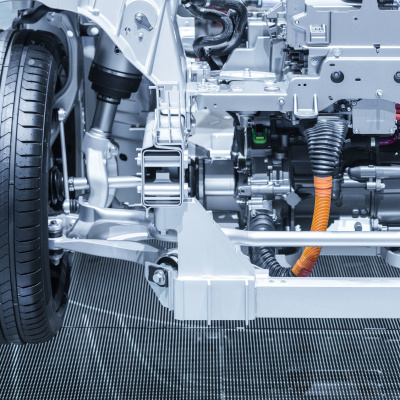We have been part of a UK consortium which has looked at reducing CO2 emissions from vehicles by the increased electrification of transport through both battery electric and hybrid vehicles.
Key facts
-
The Developing FUTURE (Fundamental Understanding of Technologies for Ultra Reduced Emission) Vehicles project has looked at reducing CO2 emissions from vehicles by the increased electrification of transport through battery electric vehicles and hybrid vehicles.
-
We were one of six UK partner universities, working in collaboration with a number of industrial partners, in the £3 million project which ended May 2016.
- Funded by Engineering and Physical Sciences Research Council (EPSRC).

Impact of our research
As part of our research we have designed and built simulation and testing facilities on campus similar to those which are currently being used by UK companies to develop their products.
This has led to one of these companies, Charge R&D Ltd (a spin-off from Kinetik), funding two PhD students to carry the research forward at Cranfield as a result of this work.
Why the research was commissioned
Major reductions in carbon emissions are required to meet tough environmental targets set by the European Commission. Most modern car manufacturers are planning or producing hybrid vehicles in various configurations and also investigating plug-in hybrid, full electric and fuel cell vehicles for future use.
It is likely that a mixture of solutions will be required depending on the application but all options require greater electrification of the powertrain (the engine and transmission) involving power electronics, electrical machines and batteries. There is a need for a better fundamental understanding of the science involved in all of these components to avoid premature degradation and failure.
Why Cranfield?
We have extensive experience in automotive engineering in general and researching electric vehicles in particular.
We are working towards the ultimate goal of eventually replacing the traditional internal combustion engine. One of the potential solutions is battery-powered electric cars but current batteries are heavy and expensive – and some batteries will explode if they are over-charged.


